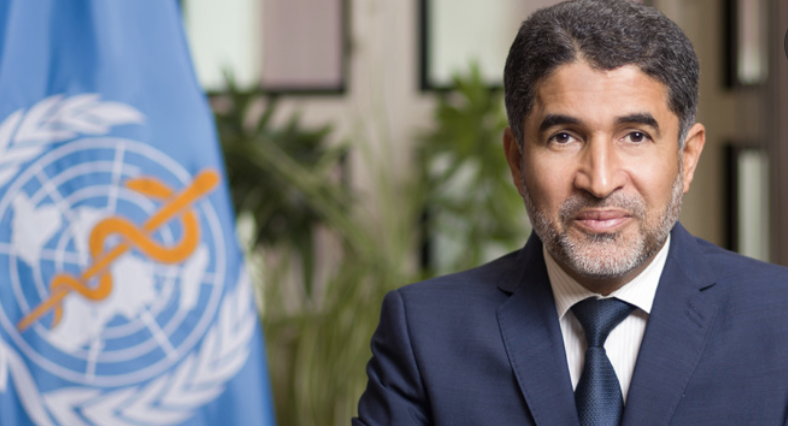
Statement by WHO’s Regional Director for the Eastern Mediterranean at the media briefing on COVID-19
Communicable Diseases
January 21, 2022
Welcome to our first press briefing of 2022, and I wish you and your loved ones a happy and healthy new year.
2021 was difficult for most of us. Despite the incredible progress made in developing effective tools to prevent and control the pandemic, including vaccines and therapeutics, we continued to see increasing numbers of people infected, too many of whom died of the disease.
As of 8 January 2022, the Eastern Mediterranean Region has reported almost 17.5 million confirmed COVID-19 cases and more than 317 000 deaths. During the first week of 2022, a total of 206 980 newly confirmed COVID-19 cases and 1053 deaths were reported. Compared to the previous week, this marks a dramatic 89% increase in cases, although there has been a 13% decrease in deaths.
It is almost certain that the highly infectious Omicron variant has caused this shocking increase in cases. Fifteen out of 22 countries in the Region have now officially reported Omicron, and as more and more people become infected, we need to prepare for the worst-case scenario. While Omicron appears to cause less severe disease compared to Delta, especially in those vaccinated, this certainly does not mean it should be underestimated, as it continues to lead to hospitalization and deaths. More countries in the Region are expected to report Omicron and we need to take it very seriously.
As we enter the third year of the pandemic, we find ourselves still in the position of a full-fledged battle against the virus, despite new tools such as vaccines and treatments. But vaccine inequity, vaccine hesitancy, and low levels of adherence to public health and social measures have given the virus an opportunity to forge ahead again. To overcome it, we must continue to scale up those actions that we know work, regardless of the variant.
A key priority remains to support and equip our frontline health workers, who are exhausted after 2 years, but whose role remains critical. They deserve our full assistance and respect. We have not yet seen health facilities overwhelmed in our Region as we have in other Regions, but we must work hard to improve hospital readiness and capacity to cope with increasing numbers of cases.
As more people become infected, we recommend that countries increase the availability of free and convenient rapid diagnostic testing options, which offer high levels of accuracy, with the added benefit of being less expensive and less time consuming than PCR tests, such as antigen tests.